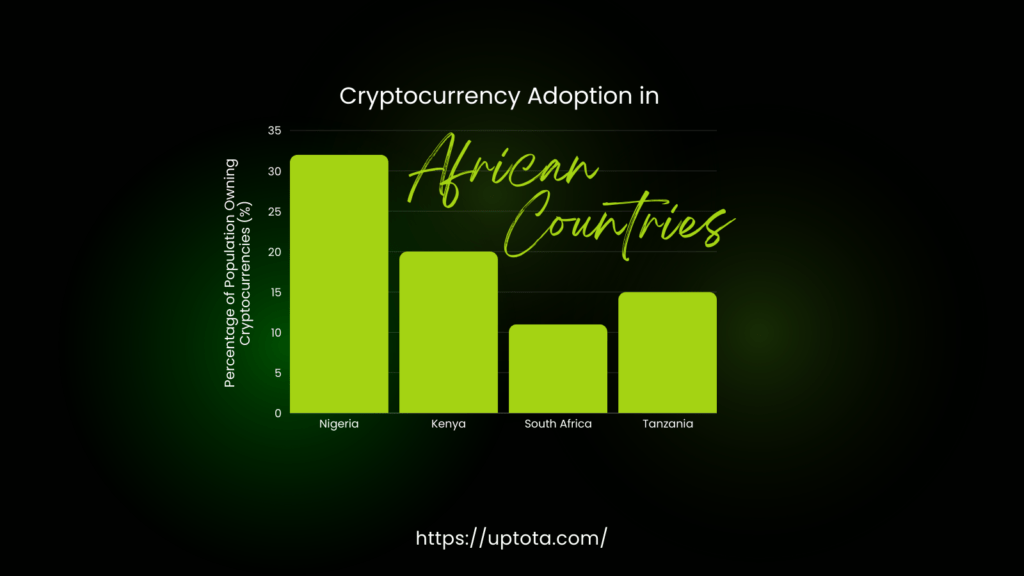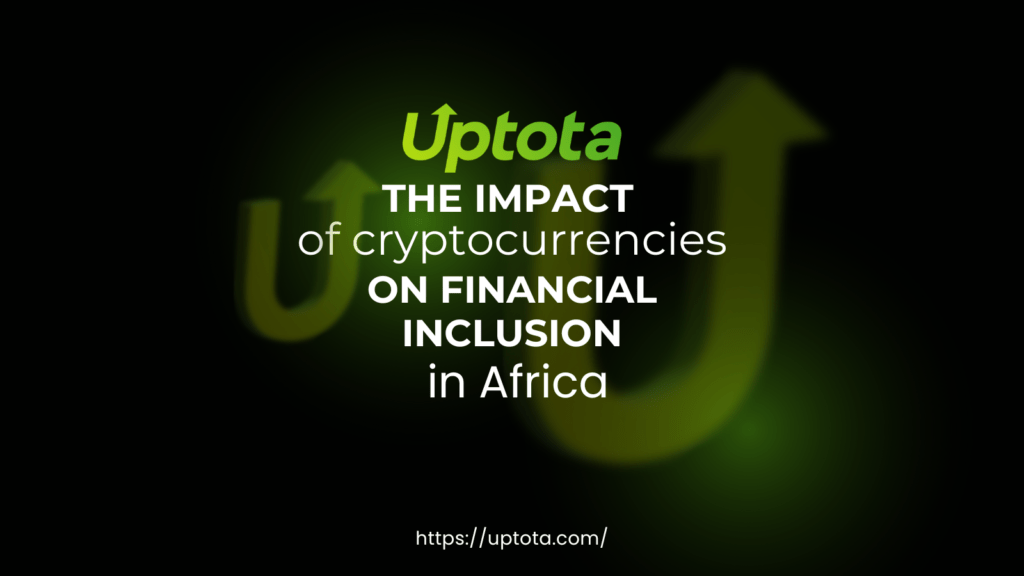Cryptocurrencies. A modern phenomenon that has already arrived all over the world. In some parts of the world, it is more popular and in others it still has potential for growth. It is interesting to see how cryptocurrencies have developed in Africa. Let’s have a closer look.
Statistics on the global acceptance of cryptocurrencies and Africa’s place in this context.
Many people are familiar with cryptocurrencies these days. Globally, cryptocurrencies and their adoption have grown strongly. Since 2019, global crypto adoption has increased by 2,300%. According to the “Global Crypto Adoption Index 2022”, Vietnam, the Philippines and Ukraine are far ahead. In the Philippines, 20% of people own cryptocurrencies, in Thailand it is also 20% and in Nigeria an incredible 32% of people own cryptocurrencies.
If we now take a closer look at Africa, according to the “2021 Geography of Cryptocurrency Report” by Chainalysis, they have reached a transaction volume of USD 105.6 billion in 2021. This puts countries such as Tanzania, Nigeria and Kenya in the global top 20 for crypto adoption.
It also stands out that 96% of the transaction volume in crypto trading in Africa took place via peer-to-peer. Africa therefore has the highest rate of cryptocurrency adoption in the world. Various factors such as limited access to banking services, inflation and a young population are the main reasons why cryptocurrencies are booming in Africa, especially in countries such as Nigeria, Kenya and South Africa.
Comparative analysis: which countries are leading in Africa and why?
Nigeria
Nigeria is the leading country in Africa, but also far ahead worldwide. According to the “Global Crypto Adoption Index 2022”, Nigeria is in the top 10 worldwide when it comes to crypto adoption, and they are also way ahead in cryptocurrency ownership. Here, 32% of the Nigerian population own cryptocurrencies. Reasons for this include inflation and currency instability, which has prompted residents to invest in cryptocurrencies such as Bitcoin. The restrictions in the banking system, as well as the generally young population with a strong enthusiasm for technology, have also led people in Nigeria to invest in cryptocurrencies.
Kenya
Kenya is the second largest country in Africa when it comes to crypto adoption and in the top 20 worldwide. They are known for their high P2P trading volume, which is also one of the highest in the world.
Through the M-Pesa payment system, there is a high acceptance of mobile payment options and thus the acceptance of paying with cryptocurrencies has also increased. The great desire for economic inclusion is prompting Kenyans to use cryptocurrencies for investments and remittances. In general, many cross-border transactions are carried out in Kenya. However, the transaction fee charged by traditional banks is too high, which encourages people to look for a cheaper option. (https://www.cryptocompare.com)
South Africa
Around 11% of South Africans own cryptocurrencies. This is according to a survey by Statista. With several local exchanges and a regulatory environment, South Africa ranks as a country with a relatively advanced crypto infrastructure. The reason for this positive adoption of cryptocurrencies is, on the one hand, the economic uncertainty caused by their thermal instability, and, on the other hand, South Africa is working on a regulatory framework that is clear to citizens, which promotes a high level of trust.
Tanzania
Tanzania has also risen massively with crypto adoption. Chainalysis records that Tanzania’s adoption rate is among the top 20 worldwide.
The reason for this is that the Tanzanian government has announced its interest in introducing digital currencies. This has boosted awareness and acceptance of cryptocurrencies. Furthermore, residents in Tanzania are also using it to avoid high transaction fees and still participate in economic inclusion. (https://www.reuters.com)
How Uptota is helping Africa catch up in this global comparison
We are committed to raising awareness of cryptocurrencies in Africa and increasing the usage rate locally to help the people of Africa out of difficult situations. Through our sophisticated remittance system, they can make most of their transfers through cryptocurrencies to avoid the high transaction costs. It not only promotes economic inclusion, but also helps families to support each other. Through our training offers, the inhabitants of Africa can deepen their knowledge of cryptocurrencies and blockchain and thus spread it better.
See more on our platform:







